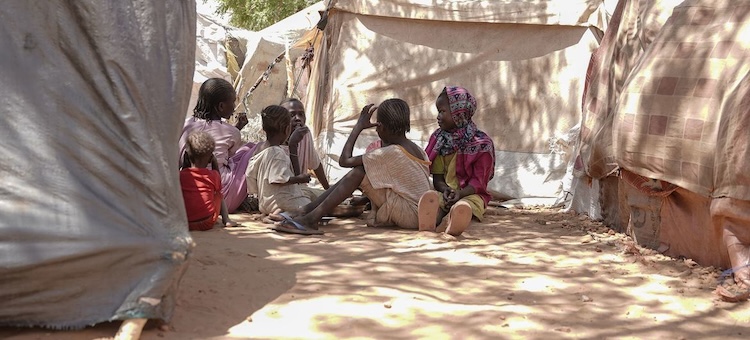UN News
NEW YORK | 1 June 2024 (IDN) —The humanitarian situation for some 800,000 civilians in El Fasher, Sudan, and surrounding areas in North Darfur continues to deteriorate amid ongoing clashes between rival military forces, the UN reported on Friday.
The fighting has reportedly forced thousands of people to flee since 10 May and caused hundreds of civilian casualties, UN Spokesperson Stéphane Dujarric told journalists in New York.
“Unfortunately, in El Fasher South Hospital—which is the only functioning hospital in that state—only 10 days of supplies are left, with an urgent need to restock the hospital,” he said.
The Sudanese army and the paramilitary Rapid Support Forces (RSF) have been locked in battle since April 2023.
The conflict has sparked a humanitarian crisis, with some 18 million people across the country going hungry and five million on the brink of famine.
Mr. Dujarric said more than a dozen trucks carrying aid for more than 121,000 people have been trying to reach El Fasher for over a month but have been hampered because of the security situation.
Turning to the wider Darfur region, he said that despite the insecurity and severe access constraints, a truck from the UN World Food Programme (WFP) was able to cross into North Darfur from Chad on 30 May.
The truck carried 1,200 metric tonnes of food and nutrition supplies for some 117,000 people.
“It is critical that these trucks are allowed to safely and directly continue to their destinations in Central and South Darfur,” he said, emphasising the need for both cross-border and cross-line access.
Health system collapsing
The World Health Organization (WHO) reported that the health system in Sudan is collapsing, particularly in hard-to-reach areas, with facilities destroyed, looted or struggling with staff shortages.
Spokesperson Christian Lindmeier said only around 30 per cent of health facilities are functional “and even so at minimal levels” while medical supplies are meeting only around a quarter of the needs.
WHO’s warehouse in Al Gezirah state has been inaccessible since last December, he said, speaking in Geneva.
“Some states, such as Darfur, have not received medical supplies for the past year,” he added.
“People suffering from diabetes, hypertension, cancer or kidney failure may experience complications or die from the lack of treatment.”
Meanwhile, disease outbreaks are on the rise. There have already been over 1.3 million cases of malaria, 11,000 cases of cholera, over 4,600 cases of measles, and roughly 8,500 cases of dengue.
Furthermore, outbreaks of malaria, measles, dengue fever and hepatitis E are also spreading in Chad.
Support and supplies
To date, WHO has reached nearly 2.5 million people through direct support to services and delivery of emergency supplies.
Some 50,000 people in Sudan received care in mobile clinics, while some 433,000 Sudanese refugees were treated in mobile clinics in eastern Chad.
Medical supplies have been delivered through cross-border operations from Chad and South Sudan, including trauma and emergency supplies, antibiotics and dengue rapid tests.
“In the past few months, WHO and partners’ efforts have led to a decline in the number of cases of cholera, dengue, and malaria,” Mr. Lindmeier said.
Around 4.5 million people have received the oral cholera vaccine in six high-risk states, and teams have delivered supplies for the treatment of 115,000 children suffering from severe acute malnutrition with medical complications. [IDN-InDepthNews]
Photo: Children shelter in the shade in Tambasi centre in El Fasher, North Darfur. © UNICEF/Mohamed Zakaria


